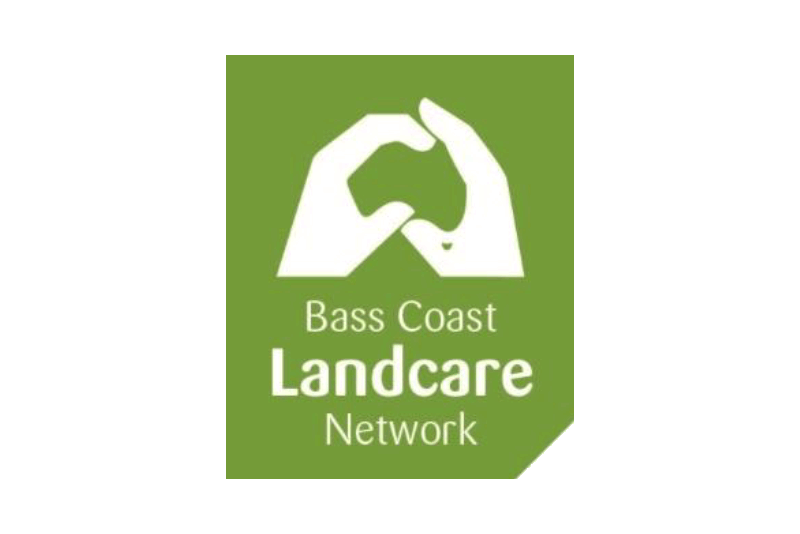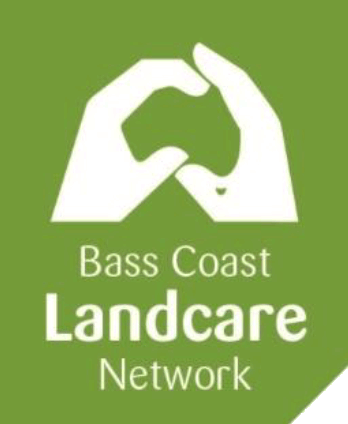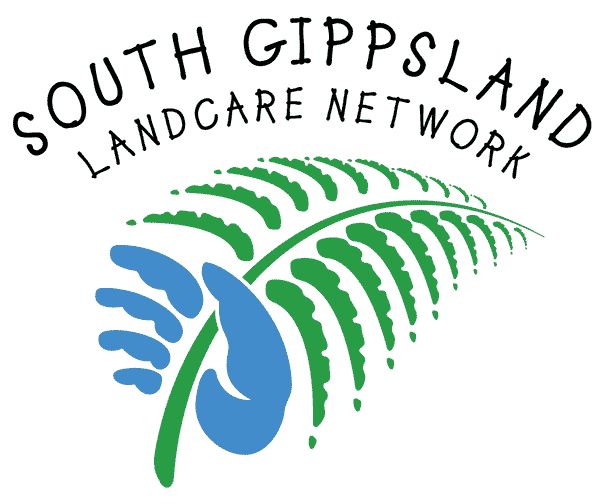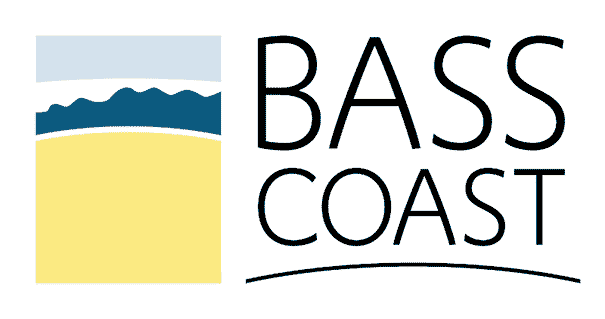Bass Coast Landcare Network
www.basscoastlandcare.org.au/
www.facebook.com/BassCoastLandcareNetwork/
About Bass Coast Landcare Network
The main aim of the Landcare Groups that form the Bass Coast Landcare Network is to promote land use and management that ensures integrity and sustainability of land, water and biodiversity. The Networks core purpose is to provide support and resources to the groups within the Network to assist them in achieving their aims and objectives.
The Bass Coast Landcare Network (BCLN) was formed in 2003 as an affiliation of the Landcare Groups, enabling them to better position themselves for investment from government, local, state and federal and corporate programs. Sixty percent of the 1,400 rural properties in the Network area are involved in and supported by the BCLN.

The Bass Coast Landcare Network falls in two Catchment Management Areas, West Gippsland and Port Phillip and Western Port. The top of the catchment is characterised by steep hills with slopes from 20 to 40 degrees whilst the lower catchment area is flat and prone to flooding and salinity. Within the catchment there are several small rural settlements surrounded by agricultural enterprises, such as dairying, beef cattle, sheep and vegetables, which support the majority of the population. Tourism, small rural allotments and extractive industries are other typical land uses within the catchment.
The Network has the twin focus of changing the understanding and the practices of landholders. In recent years the Network has conducted education and training programs for landholders and facilitated farmer discussion groups to highlight the issues of land management, best practice farming techniques and whole farm planning. In addition, the Network has been successful in gaining funds to support landholders and urban groups to complete works to improve their land. This includes re-vegetation, soil health, salinity control, sustainability, greenhouse reduction, wetland restoration, coastal rehabilitation, pest plant and animal control, improving water quality and monitoring biodiversity.
Under the direction of each of the Groups and the Network, Landcare staff manages a variety of programs, including;
- Education and Training - Engaging the next generation, supporting a community of practice
- Demonstrating Sustainable Agriculture - Providing pathways to resilient and profitable farming
- Natural Resource Management - Remnant vegetation protection and revegetation
- Pest Plant and Animal Control - Integrated management and control
- Works Crew - Assisting landholders in on ground works and offering traineeships
- Indigenous plant nursery - Volunteers growing local indigenous plants for Landcare projects
- The River Garden - A community trials, education, demonstration space and future food hub
- Practical Sustainability - Community action for sustainable farms and homes
- Capitalise on Carbon - Supporting landholders to generate income from sequestration
- Partnerships in Action - Engaging and delivering partnerships in the corporate and agency sector
- Ecosystem Services Delivery - Valuing biodiversity and providing consulting services
Bass Coast Landcare Network Core Purpose
Educate - Grow - Feed
Bass Coast Landcare Network Vision
Our vision is to be a community engaged in supporting a productive, biodiverse landscape incorporating sustainable agricultural practices and innovative environmental enterprises.
We collaborate with our groups, the community and partners to provide on ground services in the delivery of innovative land and environmental management practices in support of healthy and resilient communities and ecosystems for generations to come.
Bass Coast Landcare Network Strategies
- Strong communities engaged and connected through Landcare
- Grow and protect a connected biodiverse landscape
- Lead an innovative sustainable agricultural community
- Capitalise on Carbon
- Best Practice Governance and Safe, Skilful Operations
- Deliver leading edge experiences, education and training
Why are you involved as a partner in the Growing Southern Gippsland project?
The Bass Coast Landcare Network (BCLN) is the proponent of the Growing Southern Gippsland project. From a governance perspective BCLN is responsible for the successful implementation of the project. BCLN is also responsible for partnership management of the project and has contracts in place for all key partners.
BCLN developed the original project idea and undertook a pilot project in 2017/18 named the ‘Land Capability and Capacity’ project. Key learnings from this trial provided some valuable learnings which informed the original submission to the Victorian Centre for Climate Change Innovation (VCCCI). The original project idea developed organically over numerous years and was designed to answer the following question;
‘What would the landscape of Bass Coast and Southern Gippsland look like if it was being sustainably utilised to 100% capacity’?
Philosophically BCLN is committed to supported landowners as they strive to become more resilient in the face of changing social and climatic parameters. This is clearly documented in our Strategic Plan 2018-2015.
What are your hopes for the project upon project completion and the future?
The ‘Growing Southern Gippsland’ project is currently a two-year funded project due to be completed by June 30th, 2020. BCLN and the project partners are currently discussing the future legacy of this exciting project beyond the current funded project timeframes. As documented in BCLNs strategic plan we are fully committed to working with an engaged community supporting productive, innovative and sustainable enterprises. We will collaborate with our community and partners to provide on ground services supporting innovative land management practices and healthy and resilient communities for generations to come. With this in mind we are committed to the Growing Southern Project beyond 2020.






